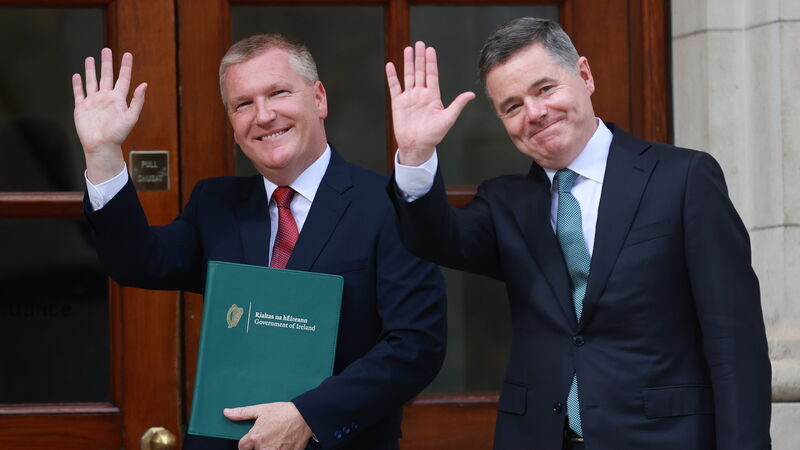IMF chides Government over expansionary budget but economic outlook remains positive

Despite warnings, Ministers Michael McGrath and Paschal Donohoe increased spending by 6.1% in the budget beaching spending rules.
The International Monetary Fund (IMF) has chided the Irish Government for its expansionary budget last month but the overall outlook for the economy remains upbeat but “clouded by considerable external risk”.
The Washington-based fund also warned the Government it was likely to miss its 2030 emissions targets and that it would need to implement additional climate policies across all sectors.










